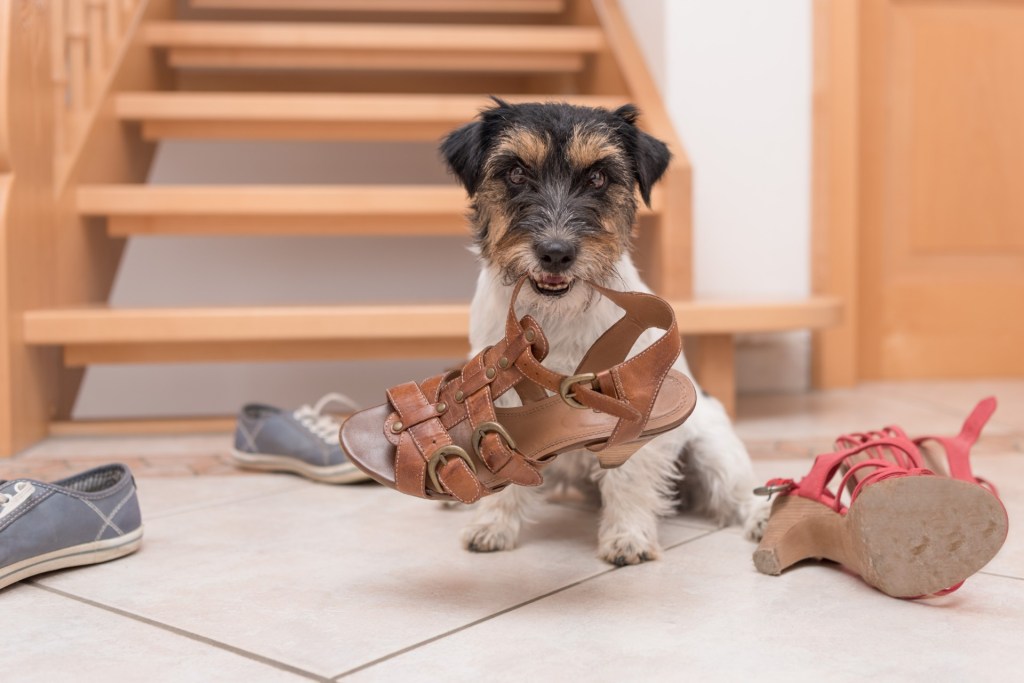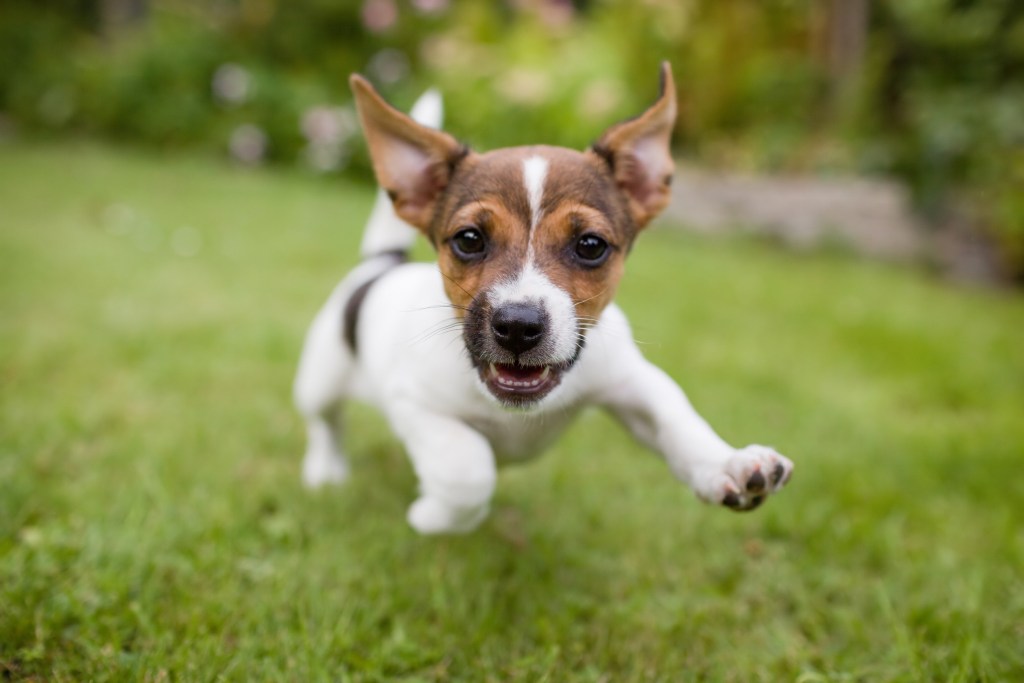Of course, they’re cute. Recently though, you’ve noticed telltale signs your puppy is teething. Little puppy teeth can quickly become a force to be reckoned with, ripping and tearing through all your favorite things. You don’t have to choose between your puppy and your favorite shoes forever.
Discouraging negative teething behavior is all about encouraging the right behavior. Here are some things you can do to survive your teething puppy and still have some fun along the way. Let’s take a look.
Why do puppies chew on everything?

It’s totally normal for puppies to be obsessed with chewing. First, as their teeth come in, they can cause some pain and discomfort that chewing helps relieve. Second, puppies explore their environment in part by tasting it (and tearing it apart). It hits that natural predatory drive as well as alleviates curiosity.
Puppies are also full of boundless energy, making it difficult to expend it all during the day. Your puppy could be tearing things up partly because of those new teeth and partly out of boredom. Sometimes, it starts as a feel-good activity for sensitive gums and turns into something fun.
If your puppy doesn’t receive adequate nutrition, that can also contribute to the chewing obsession. Your puppy could be tearing things apart, looking for new sources of nutrition to fill in calories. If you suspect this is the case, it’s best to talk to your veterinarian.
Creating a puppy-friendly environment
Part of dealing with your chewing puppy is to create an environment free of temptation. Keep things like shoes or clothing in hampers, closets, and put away where your puppy can’t find them.
You should also move things like books or other valuables out of your puppy’s reach. Forgo that perfect coffee table styling in favor of clean surfaces and minimal items that your puppy can reach — a bit like childproofing.
It may also be a good idea to begin or continue crate training to help your puppy succeed at night or for short periods of time during the day. This restricts movement and prevents your puppy from getting into things while unsupervised.
Distract the chewing with the right tools
Your puppy may be experiencing some excess energy in addition to the pain of teething. Here are some things you can do to redirect all that chewing energy.
- Use safe chew toys — Toys that provide stimulation will help alleviate the chewing instinct appropriately. Include a variety of toys with different textures and sounds to redirect all that teething energy.
- Add in some chewy treats — Talk with your vet about the types of treats your puppy can have, but options that require your puppy to bite or tear for extended periods can help alleviate the chewing instinct.
- Use a deterrent — Sprays that are safe for your things and won’t harm your puppy can help, as well. If your puppy likes to chew on furniture, the spray’s odor or taste can quickly take the fun out of that activity.
- Find puzzles — If you notice that your puppy tends to chew at certain times of the day, a good puzzle toy can help distract your puppy and provide valuable enrichment. Puzzles are fun, help your puppy develop critical thinking, and build resilience. Best of all? No time to chew.
Provide plenty of exercise
Sometimes puppies chew because of boredom and excess energy. Part of caring for your puppy is ensuring that you’re spending time exercising both the body and the brain.
- Get 30 minutes to an hour of exercise per day — This should be in the form of walks, hikes, runs, swims, or any other activity that expends energy.
- Play for at least 30 minutes — Chasing balls or frisbees, playing tug, or doing fun agility games; everything that allows your puppy one-on-one time with you is valuable.
- Provide plenty of enrichment — Training can serve two purposes — fun and engagement. Puzzle toys test a puppy’s mental stamina and curiosity. Hiding and searching games can help your puppy express energy without much physical effort from you.
- Use quick play or exercise before you leave — These activities can help calm your puppy before you have to leave, making it more likely they’ll rest instead of seeking out things to chew.

A word of warning
Puppies and dogs do not think through their actions the way humans do. Tying a teething-damaged item to your puppy, duct-taping the object to their mouth, or spanking a puppy for something done previously is not effective and could cause injury.
Instead, focus on the positive behavior you want to see. If you see your puppy in the moment of chewing something forbidden, firmly remove the item and say “no.” Replace it with an acceptable item and praise your puppy. Keeping things positive will get you much further than negative punishments.
Above all, be patient
It may take some time for your puppy to learn the ropes, so keep up your patience. Puppies may chew on things until around 6 months or so, but that doesn’t mean the behavior will stop forever. Some dogs may always have trouble with chewing.
Follow through with training, exercise, and plenty of enrichment. Offer acceptable things for your dog to chew so you’re working with the instinct rather than against it. You’ll have a better relationship with your puppy, as well as ensure your shoes survive puppyhood.


